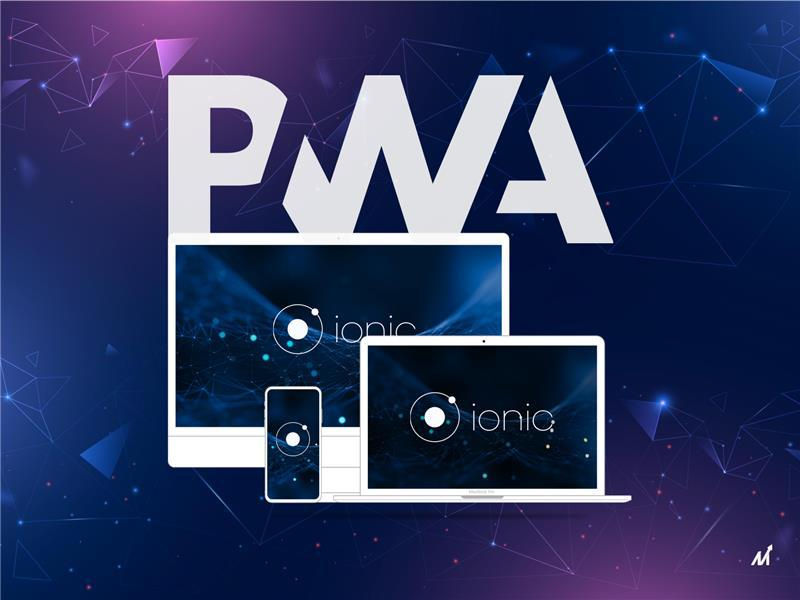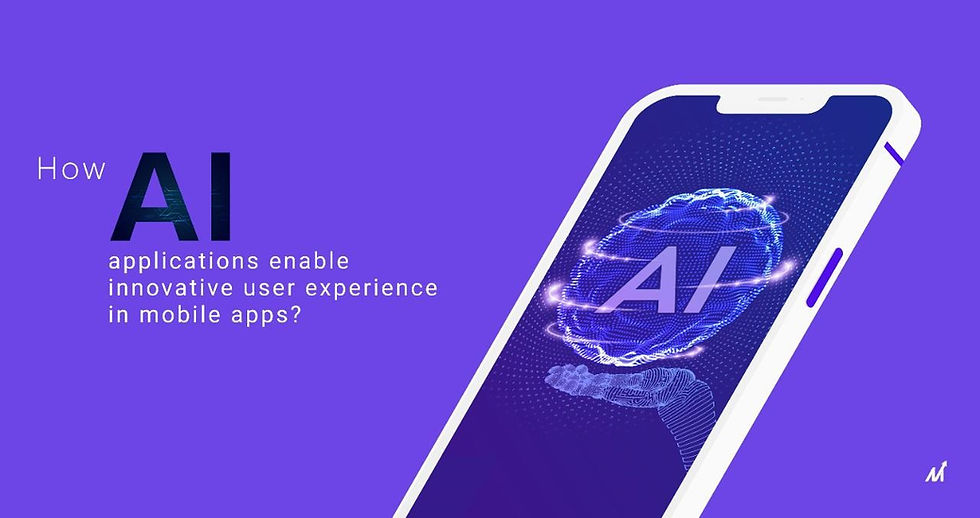How to choose the best from Native, web and hybrid app development?
- amit9154
- Feb 9, 2022
- 6 min read

In the process of creating an app to your business it can get overwhelming to choose the best framework among the various types of frameworks available. One of the most important options when creating an app for mobile devices for your business is choosing the right app development model for your company. There are other things to think about, beyond the context of your app. These influence the final outcome, for instance, the time you have to market the app, development cost and maintenance costs or if you have an in-house team of experts in development or you hire a professional developer, etc.
This blog will provide a detailed understanding of the various mobile apps with distinct development models as well as technologies used to ensure that you make the correct decision.
There are three types of mobile app development namely native, web, or hybrid development. The key difference between these three types of mobile applications is the operating system on which they are developed. Also, the programming language employed and the technology utilized and so do the respective applications.
Let's begin with a brief overview of the various kinds of mobile app development models.
Overview of the 3 kinds of mobile apps on the basis of app development
Native app development
First-party native apps are the apps that are developed using the tools created by the person who created either iOS or Android referring respectively to Apple or Google. First party native app development tools include:
For iOS: Xcode, the programming language written is Swift / Objective-C
For Android: Android Studio in the programming language Java or Kotlin
Since native apps are designed within the native environment of one platform, they offer the advantage of optimizing the user experience. For instance gestures, buttons, swipes are customized for each platform.
Hybrid app development
Hybrid apps (also known as native apps for cross-platforms) are developed as a single application for different operating systems and platforms. So, there is no requirement to create particular apps to cater to iOS and Android users. One codebase is used to create a mobile application designed for Android as well as iOS users with hybrid app development.
One of the benefits of hybrid app development is the lower development cost and time since you do not require two teams of developers to develop for two different operating systems, i.e, iOS and Android.
A few of the most popular hybrid app development tools with various frameworks include Xamarine, React Native, Flutter, Uno, Kotlin native.
Web app development
Web apps are apps that run through the web browser on a device. The user interface for web apps is very similar to the web. The development speed of web applications is quick because the same code is used for various platforms. A few of the most popular web app development frameworks are Microsoft blazer, Native Script, Angular js, React, Ionic.
One of the drawbacks of creating web-based apps is that should you need to update the elements of the UI in your web application, you would have to rewrite the UI of your web app entirely unlike native apps in which you only have to compile the user interface in this case.
Now that you are acquainted with the different kinds of mobile apps and their primary distinctions, let's examine how the framework or technology that is used affects the features of overall app development respectively. The most important thing to keep in mind is that they are developed differently, so the most effective of the three different kinds of mobile applications will be different for each business need and resources available.
3 different types of mobile apps & their technology and framework
Native apps
Native apps are extremely user-friendly and high performant. The native app development tools provide their own operating systems' UI/UX, upgrades, etc. They are distributed through apps stores, Google Play Store and the App Store. The development process of native apps is slow due to the fact that it's necessary to develop the same application twice on various platforms with different code and teams of developers. Following are the key characteristics of native apps according to the technology used.
Framework owner: Apple/Google
UI/UX: Native
Development speed: Slow
Maintenance cost: High
Performance: Very High
Programming language: Swift/Java
Maturity: Very Mature
Feature Access: Complete
Open-source: No
Pros:
Native applications offer superior performance and speed.
The hardware resources needed are limited due to the efficient coding.
They have optimized UI/UX as a result from the local environment of development
They can also increase the use of apps by the ability to leverage push notifications according to the requirements you want to meet.
Native apps are able to function offline.
Cons:
Development costs, time and cost.
In the same way, maintenance and updates are also more time-consuming.
No code flexibility for various operating systems
Hybrid apps
Hybrid or cross-platform native applications are basically a mix of both native and Web app technology. There are a lot of technologies and frameworks to develop a hybrid app. The core of a hybrid app is created using web-based programming languages such as HTML, CSS and Java and runs within the native application. The speed of development and the cost are less than native apps. There are numerous modern hybrid frameworks, such as Ionic, Native Script, Xamarin, React Native that offers strong UI elements closer to that of native applications.
Framework owner: Multiple
UI/UX: Native
Development speed: Fast
Maintenance cost: Low
Performance: High
Programming language: Multiple
Maturity: Mature
Feature Access: Complete
Open-source: Yes
Pros:
Lesser development time and cost than native's.
The device is able to access the native functions of the device.
Multiple platforms are supported by a single codebase.
Simple deployment of updates.
Ability to work with no internet, in instances where database support is not needed.
Cons:
Less in performance than native applications.
Some features might not work in certain operating systems.
The cost of customization may be higher.
Have to adjust to two different platforms at the same time, which could affect the user interface of one or the other.
Difficult to run on older devices and browsers.
Web apps
Web applications can be accessed by using the web browser on devices on mobile. Web apps are written in HTML, CSS and JavaScript. They don't require app stores for access and so avoid restriction on access to regulations that apply to app stores. And can be used across various devices. In the year 2017, Google launched Progressive Web Applications(PWA) that brought in more app-like features than traditional web apps.
Framework owner: Multiple
UI/UX: Bespoke
Development speed: Fast
Maintenance cost: Medium
Performance: Medium
Programming language: Multiple(Web)
Maturity: Adolescent
Feature Access: Limited
Open-source: Open Source
There are certain features that are available to PWA while some are not and they include the following:
Bluetooth
Local notifications
Touch gestures
Geolocation
Camera
Device Motion
Offline storage
There are features that are not offered in web-based apps:
Push notifications
Battery Status
Vibration
Geofencing
Augmented reality
Pros:
Faster development time and lesser cost
App distribution is easy due to no limitations on app stores
Supports multiple platforms with a single codebase
Faster updates in the absence of the app store
Cons:
It is not able to fully exploit the capabilities of the device
Slower speed than native
It's working needs internet access.
What is the best choice for app development for your company?
You should consider native app development if you need speedy performance and superior accessibility for your application. Additionally, the highly responsive user interface, and user experience is an important advantage that comes with native app development.
If you're looking to integrate third-party services and high speed for your app, native apps could be the best option. If you're looking for a standard user experience and a lower budget, then hybrid apps may meet your requirements. Hybrid apps are also able to support an extensive user base.
Choose web app development if your application requires rapid deployment at a lower cost and if your app requires access to networks.
However, the speed of web-based applications is less than native apps; for example, if native app's response times are 10 milliseconds. Then a hybrid app's response time would have to be 100 milliseconds. This is less than the level that a user is able to see, however, in the event that you require apps with the most efficient performance, such as for gaming, then a native app would be better suited.
5 questions to ask before making the decision between hybrid and native applications development
Before you set out to build your app it is vital to start at the beginning and ask yourself the following questions:
What's the primary intention of this app?
What are the requirements for this application?
Who are the potential clients of your business?
Should you opt for internal app development rather than outsourcing?
What sort of users experience will you want to deliver?
The most trusted, 6 steps method to create applications using hybrid application development
We follow a six steps procedure for hybrid and native app development for our clients. Check out:
Analysis & planning
UI & UX design
Mobile application development
Mobile application integration
Mobile application testing
Mobile application maintenance
Finally, there isn't a one-size-fits-all approach to the development of mobile applications. There are many tools and plugins that you can use for you to design the most effective app for your business. We've given you some information about hybrid, web, and native app development, so you can choose the best one. However, the choice largely is dependent on your specific objectives and needs for your business.
When choosing between the different kinds of apps that you can develop for your company, be aware of the advantages and disadvantages of every type of mobile app. The starting point is determining your specific business needs. Contact our professionals and experts in app development at Markovate to assist you in creating the app of your dreams which also suits your customers' needs.
Markovate offers a range of hybrid application frameworks development, such as Xamarin, Flutter, Mobile Angular UI, Ionic, and React Native for native app development. We can help you with selecting the appropriate framework for you. Ask our experts more.







Comments